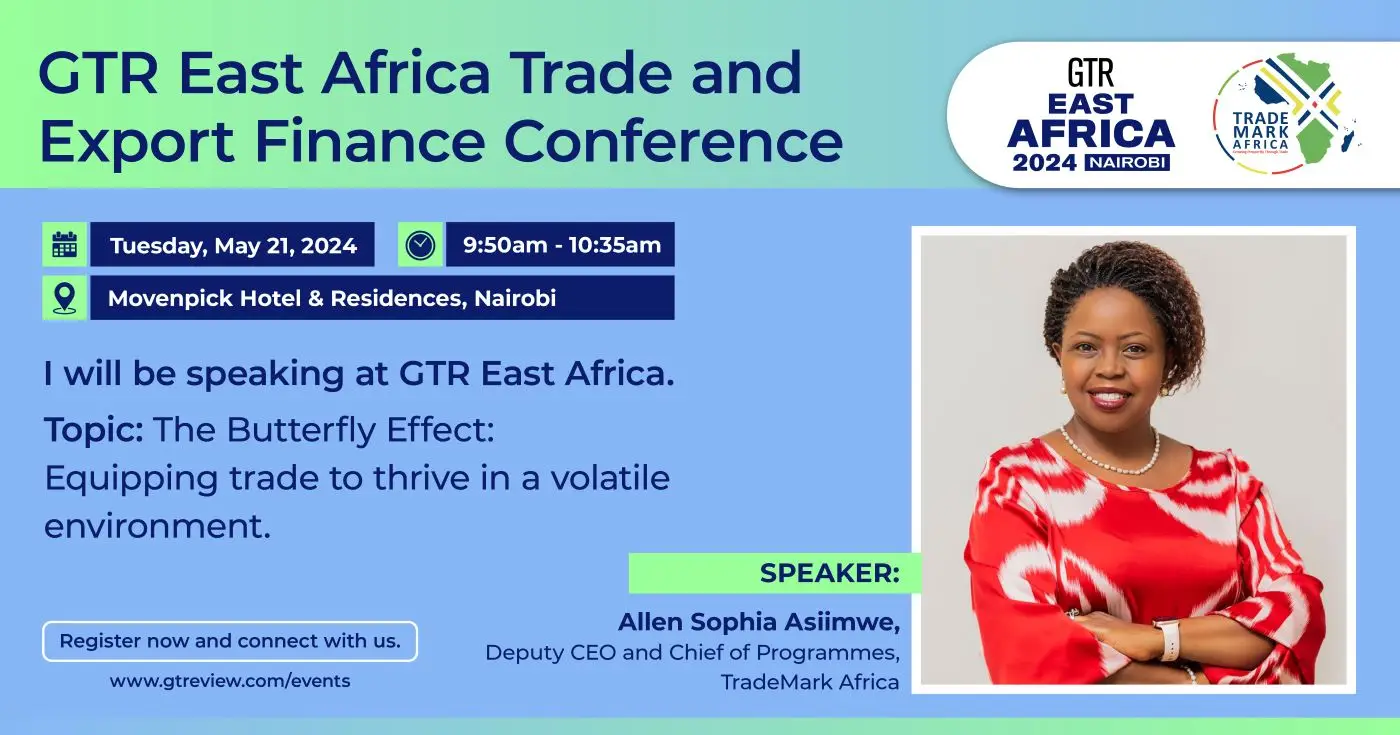After years of economic pressures and sovereign debt concerns, East African economies are riding a wave of optimism and opportunity in trade finance and infrastructure investment. This comes on the back of the COVID-19 pandemic that brought the world to a standstill, along with concerns around debt sustainability, inflationary pressures, and recent climate events such as intense rainfall and flooding.
These are among the issues that will feature in discussions during the opening high-level panel session at the GTR East Africa event in Nairobi on May 21-22, 2024. Convened by Global Trade Review (GTR), the event will bring together industry leaders, policymakers, financiers, and innovators to deliberate on the opportunities that will drive growth in trade and power the region’s economic development. Over 50 expert speakers will grace the two-day event, with the exhibitions availing opportunities participants to network with over 300 industry leaders, peers, and potential clients.
“This is an important forum that brings together thought leaders and stakeholders in trade finance, investment, trade, and industry to chart the way forward for East Africa’s trade and investment prospects. Such important discussions are happening on the back of unprecedented challenges such as the intense flooding not just across the region, but also globally and how these events have disrupted the flow of trade, logistics and supply chains. We have already witnessed first hand how critical logistics and supply chain infrastructure at important facilities such as cargo handling terminals at airports can face disruptions, while also exploring the need to climate proof our infrastructure to make them more resilient,” said Allen Asiimwe, Deputy CEO and Chief of Programmes at TradeMark Africa (TMA). Ms. Asiimwe will sit on the high-level opening panel session dubbed; “The butterfly effect: Equipping trade to thrive in a volatile environment,” which resonates with the economic, geopolitical and environmental concerns that have unfolded globally in the last few years, and which continue to have lasting repercussions on economies the world over.
East African economies also find themselves at various other crossroads of a fast-evolving and vastly unpredictable external influences such as external debt and sustainability concerns, foreign exchange volatility, and soaring inflation. Speakers will explore the length and breadth of trends in the trade and investment environment, the risks and mitigation measures as well as the bright spots related to economic development and growth across the region. They will also share a wide range of perspectives on the initiatives that can expand trade and financing opportunities for building the soft and hard infrastructure, as well as investment in value-addition opportunities to tap into the growing opportunities in Africa and in global markets.
“From the impact of digitalisation on trade to navigating the regulatory environment and unlocking new market opportunities to the resilience of international logistics and supply chains and the prospects for the trade and logistics sector, and much more, the deliberations will offer important insights to participants,” Ms. Asiimwe noted.


